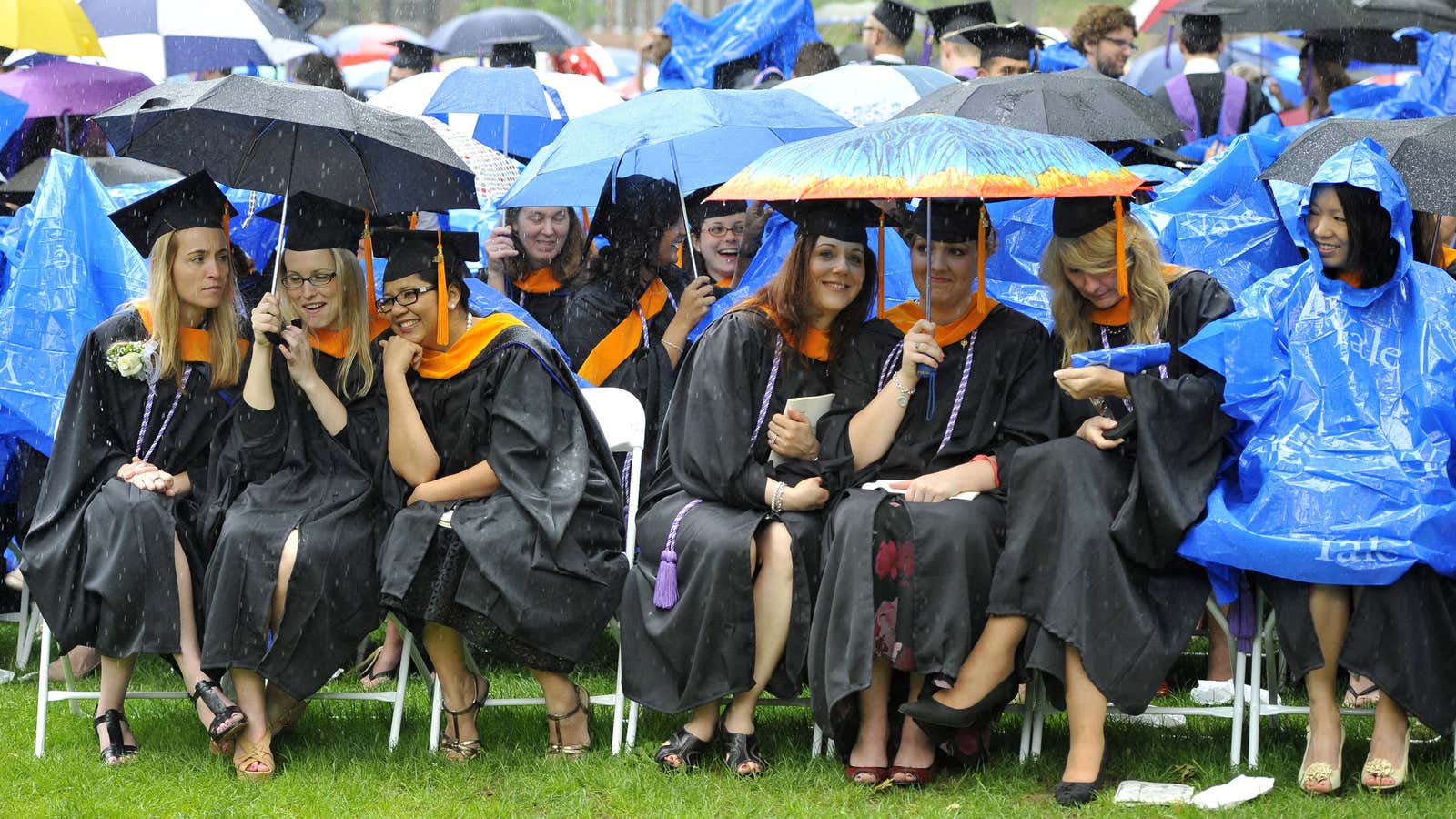I mark the change in weather by rotating my music selection: there are bands for the winter, and bands for summer and fall, but there’s a certain je ne sais quoi about spring air that demands reciprocating its freshness.
As a result, I’ve recently rediscovered Vampire Weekend’s eponymous debut album. One song in particular—the record closer, “The Kids Don’t Stand A Chance”—has resonated with me, and not just for its cherry blossom, campus-pop aesthetic: I’m a senior at Yale, graduating in May, and I’m terrified. After commencement ends and I leave the warm embrace of academia, there doesn’t seem to be much in the way of job opportunities
And I’m not the only one. In a recent New York Times column, David Brooks extensively quoted Victoria Buhler, one of his students and a fellow classmate of mine. Through him, she describes our generation as the Cynic Kids: we’re suspicious of causality, we don’t like idealism, we’re budding wonks, and we require mountains of empirical evidence before we make any decision, no matter how trivial. I’d add that we’re deeply, pathologically ironic, but, aside from that, I think Buhler gets it right. We’re cynical because we have to be. America’s economy is self-destructing, wealth inequality is at historic highs, and there’s a chronic shortage of employment, especially for recent grads. According to a Rasmussen report, released on Feb. 5, only 15% of American adults think that their children will be better off than them. That’s a bleak number. What’s worse are the unemployment rates for recent college graduates, astronomically high rates of underemployment, and the phenomenon of long-term negative economic effects—termed “scarring”—that happen as a consequence of recessions.
Of course, our current situation isn’t entirely unique. In the early 1980s, the world plunged into a severe economic recession. In America, it lasted for two years, and was a direct result of the Federal Reserve’s attempt to control high inflation after the twin oil and energy crises of the ’70s. Though the recent financial crisis was precipitated by different events, the state of the economy and the fears of the public were very similar.
In 2009, Lisa Kahn, a labor economist and professor at the Yale University School of Management, published a study analyzing the situation of graduates who came of age during the 1980s.
Here’s what she found:
- Graduating from college in a bad economy has a long-run, negative impact on wages
- There’s a negative effect on occupational attainment and slight increases in both educational attainment and tenure for those who graduate in worse national economies
- Wage loss ranges from 1-20% each year, relative to the cohorts with the minimum state and national unemployment rates
However, recent graduates face challenges that didn’t exist in the ’80s that make our situation worse: for example, the rise of unpaid internship culture (and the commensurate decline in entry-level positions), as well as the requirement that workers be constantly connected to their jobs via smartphones. I’ve done my fair share of internships, desperately trying to gain the necessary experience to land an entry-level position. Isn’t the whole point of an “entry-level” position the fact that one doesn’t need prior experience to hold it?
The New York Times Magazine recently published an article entitled “Do Millennials Stand a Chance in the Real World?” Predictably, the comment section was ablaze with vehement opinions from people who identified themselves as Baby Boomers, Gen-Xers, Gen-Yers, and Millennials.
The millennials in the comment section were angry about their prospects for the future. And I empathize, although as a future graduate of Yale, I’m in an arguably different position. Ideally, I’d like to work in some sort of creative field next year, and I won’t pretend that the Yale name doesn’t carry some weight.
Even so, my friends and I all know people who graduated from Yale and haven’t been able to find jobs that pay better than minimum wage afterwards: they work as bartenders and in sandwich shops, doing unpaid internships, living on tips.
There are only four weeks of classes left in my college career, and I’m still unemployed.
It doesn’t surprise me that we’re a generation of cynics. Do we—the kids—stand a chance?
You can follow Bijan on Twitter at @bijanstephen. We welcome your comments at ideas@qz.com.
